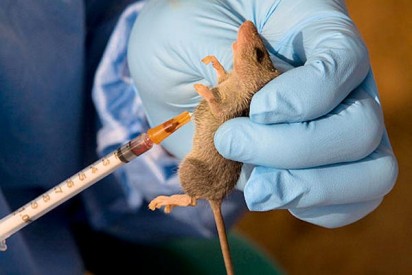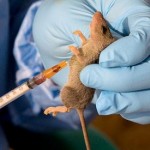]By Asma’u Ahmad
The Federal Government on Monday says there is a decline in number of new cases of Lassa fever in the country.
Chief Executive Officer of the Nigeria Centre for Disease Control (NCDC), Dr Chikwe Ihekweazu disclosed this at a news conference in Abuja. Ihekeazu said that the country had witnessed a reduction in the number of people who have died from the disease compared to 2018.
He revealed that the NCDC and partners had continued to sustain response activities in states across the country, despite progress made so far.“An outbreak of Lassa fever was declared in Nigeria on Jan. 21, 2019.
Since then, 420 confirmed cases and 93 deaths have been reported in 21 states. The national response is being coordinated by the national, multi-sectoral, multi-partner Emergency Operations Centre (EOC) led by the NCDC.
“In addition, the centre has supported Ebonyi, Edo, Ondo, Plateau and Kebbi States in activating sub-national level EOCs for coordination,” the chief executive officer said.
Ihekeazu said that following the large Lassa fever outbreak in 2018, the NCDC together with partners instituted five key measures to ensure improved preparedness in 2019. NCDC boss listed some of the measures as training of over 1,000 healthcare workers on Lassa fever management, diagnosis and surveillance, together with the Irrua Specialist Teaching Hospital.
He said that prepositioning of treatment and diagnostic supplies to the 21 states that recorded cases in 2018, treatment centres and laboratories. Ihekeazu added that publication of Lassa fever messages on three major newspapers, weekly radio shows on Radio Nigeria and intensive community engagement were part of the improved preparedness.
According to the NCDC boss, this year, there has been no single stock-out reported in any state. “In January 2019, NCDC hosted the first Lassa fever International Conference. This brought together the largest gathering of researchers and professionals to discuss progress on Lassa fever.
The NCDC boss noted that in 2018, genetic sequencing carried out showed that the virus circulating originated from the pool of lineages that have been in Nigeria since the first discovery. He said that this year, early sequencing result showed similar findings.
Newsmen report that Lassa fever is a viral infection caused by the Lassa fever virus, primarily transmitted to humans through direct contact, eating food or drinking water contaminated with urine, faeces, saliva or blood of infected rats.
However person-to-person transmission is through contact with blood, urine, saliva, throat secretion or semen of an infected person.
The disease can be treated with early presentation at a healthcare facility greatly increasing the chances of survival. Early signs of the disease include sudden fever, sore throat and general body weakness.





